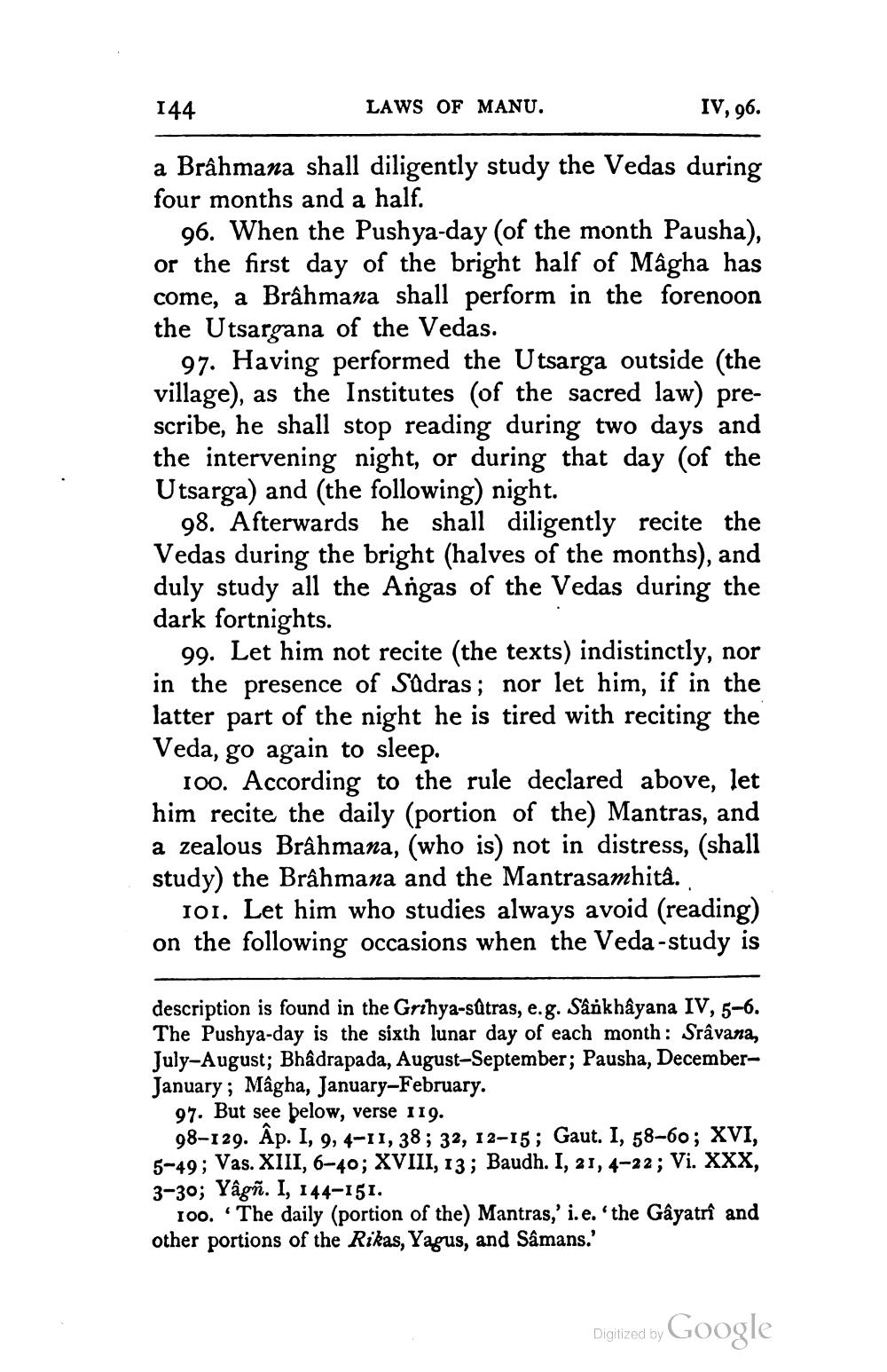________________
144
LAWS OF MANU.
IV, 96.
a Brâhmana shall diligently study the Vedas during four months and a half.
96. When the Pushya-day (of the month Pausha), or the first day of the bright half of Mâgha has come, a Brâhmana shall perform in the forenoon the Utsargana of the Vedas.
97. Having performed the Utsarga outside (the village), as the Institutes (of the sacred law) prescribe, he shall stop reading during two days and the intervening night, or during that day (of the Utsarga) and (the following) night.
98. Afterwards he shall diligently recite the Vedas during the bright (halves of the months), and duly study all the Angas of the Vedas during the dark fortnights.
99. Let him not recite (the texts) indistinctly, nor in the presence of Sudras; nor let him, if in the latter part of the night he is tired with reciting the Veda, go again to sleep.
100. According to the rule declared above, let him recite the daily (portion of the) Mantras, and a zealous Brâhmana, (who is) not in distress, (shall study) the Brâhmana and the Mantrasamhita..
101. Let him who studies always avoid (reading) on the following occasions when the Veda-study is
description is found in the Grihya-sútras, e.g. Sårkhâyana IV, 5-6. The Pushya-day is the sixth lunar day of each month: Srâvana, July-August; Bhadrapada, August-September; Pausha, DecemberJanuary; Mâgha, January-February.
97. But see below, verse 119.
98-129. Ap. I, 9, 4-11, 38; 32, 12-15; Gaut. I, 58-60; XVI, 5-49; Vas. XIII, 6-40; XVIII, 13; Baudh. I, 21, 4-22; Vi. XXX, 3-30; Yâgñ. I, 144-151.
100. "The daily (portion of the) Mantras,' i.e. 'the Gâyatrî and other portions of the Rikas, Yagus, and Sâmans.'
Digitized by Google




